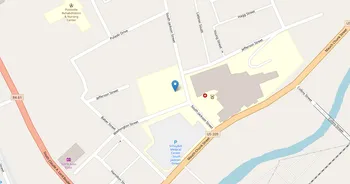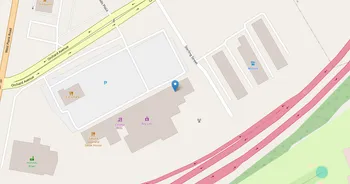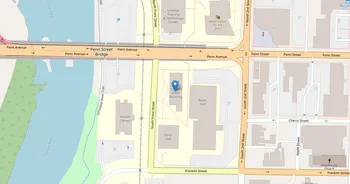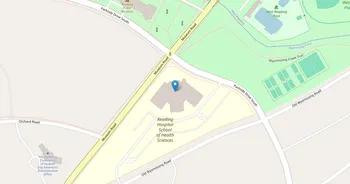Point Park University : Overview, Courses, Scholarships & Rankings
About Point Park University
In the heart of downtown Pittsburgh, the campus spills into city blocks and coffee shops, so class and real life sit side by side. The university is known for strength in the performing and cinematic arts, media and communication, business, education, and public service. Courses favor hands-on projects and critique, with instructors who bring current industry perspective. Studios, stages, and collaborative labs sit alongside study nooks and residence halls, and students tap advising, tutoring, wellness care, and a responsive career center.
Student life feels energetic yet tight knit. Clubs, student media, live productions, and club sports keep nights busy, and the riverside paths, markets, galleries, and ballparks are close. The culture skews creative, pragmatic, and unapologetically urban. Career prep shows up through internships with nearby companies, nonprofits, courts, and arts organizations, plus guest pros who drop by between gigs. It all adds up to that city-as-campus vibe, where you build a reel, a resume, and a network at the same time.
Key Institutional Details
Contact & Profile
Academic & Institutional
Academic Programs & Fields of Study
Point Park University offers 60 degree programs across 19 major academic fields, graduating approximately 920 students annually. The most popular fields by graduate volume are Education (12 programs, 344 graduates), Arts (9 programs, 186 graduates), Business (6 programs, 144 graduates), Communication (7 programs, 49 graduates) and Psychology (3 programs, 41 graduates). Explore program details, award levels, and graduate demographics below.
Education (12 programs, 344 graduates)
Educational Sciences, Teaching Methods and Pedagogy
| Program Name | Graduates | Gender Distribution | Award Levels | CIP Code |
|---|---|---|---|---|
| Educational Leadership and Administration | 185 |
|
Master's
Post-Master's
Doctorate (R)
|
13.0401 |
| Secondary Education and Teaching | 55 |
|
Master's
|
13.1205 |
| Reading Teacher Education | 23 |
|
Postbac Cert.
Master's
|
13.1315 |
| Instructional Technology | 22 |
|
Postbac Cert.
Master's
|
13.0501 |
| Physical Education Teaching and Coaching | 17 |
|
Master's
|
13.1314 |
| Elementary Education | 15 |
|
Bachelor's
|
13.1202 |
| Superintendency and Educational Administration | 12 |
|
Post-Master's
|
13.0411 |
| Learning Sciences | 8 |
|
Bachelor's
|
13.0607 |
| Special Education Teaching | 2 |
|
Bachelor's
|
13.1001 |
| Mathematics Teacher Education | 2 |
|
Bachelor's
|
13.1311 |
| Social Studies Teacher Education | 2 |
|
Bachelor's
|
13.1318 |
| Biology Teacher Education | 1 |
|
Bachelor's
|
13.1322 |
Arts (9 programs, 186 graduates)
Fine Arts, Design Studies and Creative Performance
| Program Name | Graduates | Gender Distribution | Award Levels | CIP Code |
|---|---|---|---|---|
| Dance | 63 |
|
Bachelor's
|
50.0301 |
| Cinematography and Film Production | 34 |
|
Bachelor's
|
50.0602 |
| Musical Theatre | 24 |
|
Bachelor's
|
50.0509 |
| Acting | 17 |
|
Bachelor's
|
50.0506 |
| Playwriting and Screenwriting | 15 |
|
Bachelor's
Master's
|
50.0504 |
| Theatre Arts | 12 |
|
Bachelor's
|
50.0501 |
| Graphic Design | 11 |
|
Bachelor's
|
50.0409 |
| Theatre Directing and Production | 8 |
|
Bachelor's
|
50.0507 |
| Photography | 2 |
|
Bachelor's
|
50.0605 |
Business (6 programs, 144 graduates)
Business Administration, Marketing and Entrepreneurship
| Program Name | Graduates | Gender Distribution | Award Levels | CIP Code |
|---|---|---|---|---|
| Business Administration and Management | 59 |
|
Bachelor's
Master's
|
52.0201 |
| Business and Management Services | 40 |
|
Bachelor's
|
52.9999 |
| Accounting | 16 |
|
Bachelor's
|
52.0301 |
| Marketing Management | 13 |
|
Bachelor's
|
52.1401 |
| Human Resources Management | 9 |
|
Bachelor's
|
52.1001 |
| Organizational Leadership | 7 |
|
Bachelor's
Master's
|
52.0213 |
Communication (7 programs, 49 graduates)
Media Communications, Journalism and Public Relations
| Program Name | Graduates | Gender Distribution | Award Levels | CIP Code |
|---|---|---|---|---|
| Public Relations and Advertising | 19 |
|
Bachelor's
Master's
|
09.0900 |
| Digital Media and Multimedia | 9 |
|
Bachelor's
Master's
|
09.0702 |
| Radio and Television Broadcasting | 7 |
|
Bachelor's
|
09.0701 |
| Journalism | 6 |
|
Bachelor's
|
09.0401 |
| Sports Communication | 5 |
|
Bachelor's
|
09.0906 |
| Broadcast Journalism | 2 |
|
Bachelor's
|
09.0402 |
| Public Relations and Image Management | 1 |
|
Bachelor's
|
09.0902 |
Psychology (3 programs, 41 graduates)
Psychological Sciences, Mental Health and Behavioral Studies
| Program Name | Graduates | Gender Distribution | Award Levels | CIP Code |
|---|---|---|---|---|
| General Psychology | 17 |
|
Bachelor's
|
42.0101 |
| Clinical Psychology | 16 |
|
Master's
Doctorate (P)
|
42.2801 |
| Community Psychology | 8 |
|
Master's
Doctorate (R)
|
42.2802 |
Security & Safety (2 programs, 23 graduates)
Emergency Management, Law Enforcement and Public Safety
| Program Name | Graduates | Gender Distribution | Award Levels | CIP Code |
|---|---|---|---|---|
| Forensic Science and Technology | 12 |
|
Bachelor's
|
43.0406 |
| Criminal Justice and Safety Studies | 11 |
|
Bachelor's
|
43.0104 |
Interdisciplinary (1 programs, 22 graduates)
Cross-Disciplinary Studies and Integrated Research Programs
| Program Name | Graduates | Gender Distribution | Award Levels | CIP Code |
|---|---|---|---|---|
| Multi- and Interdisciplinary Studies | 22 |
|
Bachelor's
|
30.9999 |
Media Tech (2 programs, 14 graduates)
Digital Media Technologies and Broadcasting Systems
| Program Name | Graduates | Gender Distribution | Award Levels | CIP Code |
|---|---|---|---|---|
| Animation and Interactive Technology | 12 |
|
Bachelor's
|
10.0304 |
| Communications Technology | 2 |
|
Master's
|
10.0105 |
Public Services (2 programs, 13 graduates)
Public Administration, Social Work and Community Services
| Program Name | Graduates | Gender Distribution | Award Levels | CIP Code |
|---|---|---|---|---|
| Public Administration | 10 |
|
Bachelor's
|
44.0401 |
| Community Organization and Advocacy | 3 |
|
Doctorate (R)
|
44.0201 |
Health (1 programs, 12 graduates)
Healthcare Professions, Medical Sciences and Clinical Practice
| Program Name | Graduates | Gender Distribution | Award Levels | CIP Code |
|---|---|---|---|---|
| Health Administration and Management | 12 |
|
Master's
|
51.0701 |
Admission Requirements & Test Scores
Comprehensive overview of admission criteria, standardized test score ranges, and application requirements for prospective students at Point Park University.
Application Requirements
Data based on IPEDS for 2022-2023 academic year. Test score ranges represent the middle 50% of admitted students (25th-75th percentile). Requirements may vary by program.
Tuition, Fees & Estimated Costs
Overview of tuition rates, housing, and other annual education expenses for undergraduate and graduate students
Financial Aid & Student Support
Summary of scholarships, grants, student loans, and financial aid statistics for undergraduate students
Student Success Metrics
Graduation rates and post-graduation earnings to help assess student outcomes and long-term value of education.
Loan Burden & Repayment Outcomes
Breakdown of loan repayment rates and student debt levels by income and dependency status.
Frequently Asked Questions
Find answers to the most common questions about Point Park University
How much does it cost to attend Point Park University?
The annual tuition at Point Park University is $38,160 for in-state students. When including room and board, books, and other expenses, the total estimated cost is approximately $54,180 for in-state students. Additional costs include room and board $12,480 (on) / $3,150 (off) and books and supplies $1,200.
Data based on IPEDS program completions for 2022-2023 academic year. Tuition and cost estimates are approximate and may not include all fees, personal expenses, or transportation costs.
What academic programs and degree levels does Point Park University offer?
Point Park University offers 60 academic programs across 19 major fields of study, with available degree levels: Associate's, Bachelor's, Postbac Cert., Master's, Post-Master's, Doctorate (Research), Doctorate (Professional), Other Award.
Most popular program areas include:
- Educational Sciences, Teaching Methods and Pedagogy (12 programs)
- Fine Arts, Design Studies and Creative Performance (9 programs)
- Business Administration, Marketing and Entrepreneurship (6 programs)
- Media Communications, Journalism and Public Relations (7 programs)
- Psychological Sciences, Mental Health and Behavioral Studies (3 programs)
Data based on IPEDS program completions for 2023-2024 academic year. Numbers reflect programs where students graduated, not all offered programs.
What is the acceptance rate for Point Park University?
Point Park University has an 97.9% acceptance rate and a 10% yield rate, making it moderately selective.
Admission statistics breakdown:
- Total applicants: 5,291
- Students admitted: 5,179
- Students enrolled: 519
Data based on IPEDS for 2022-2023 academic year. Admission statistics may vary by program and application cycle.
What financial aid and scholarships are available at Point Park University?
Point Park University provides financial aid to 23% of first-time, full-time students, with average grants of $24,776 and average loans of $10,165.
Average financial aid amounts by type:
- Pell grants: $5,037
- State/Local grants: $4,168
- Institutional grants: $21,326
- Federal loans: $5,431
The university supports 553 students with grants and 458 students with loans annually.
Data based on IPEDS for 2022-2023 academic year. Financial aid amounts and percentages may vary by program, enrollment status, and individual circumstances.
What is the average salary for Point Park University graduates?
Point Park University graduates earn a median salary of $36,906 after 6 years and $45,856 after 10 years.
The salary range 10 years after graduation spans from $25,514 (25th percentile) to $66,756 (75th percentile), with top earners reaching $79,600 (90th percentile).
Data based on IPEDS for 2022-2023 academic year. Salary data reflects graduates who received federal financial aid (approximately 60% of all graduates). Actual earnings may vary significantly based on program, location, and individual circumstances.
Related Universities




Found something useful? Help others discover it too! Share with friends, on social media, or save for later - every share helps someone find the information they need.